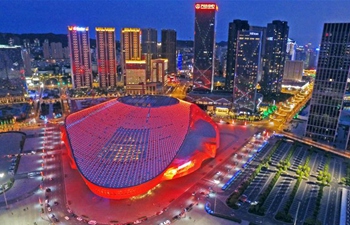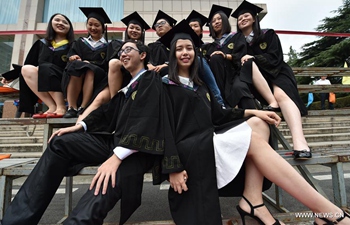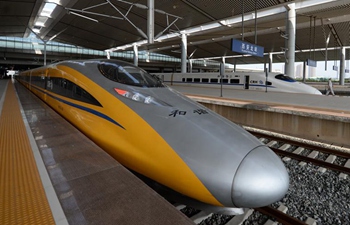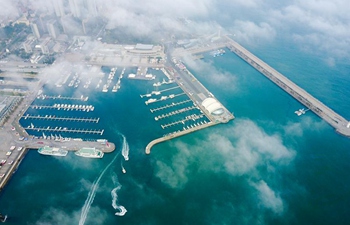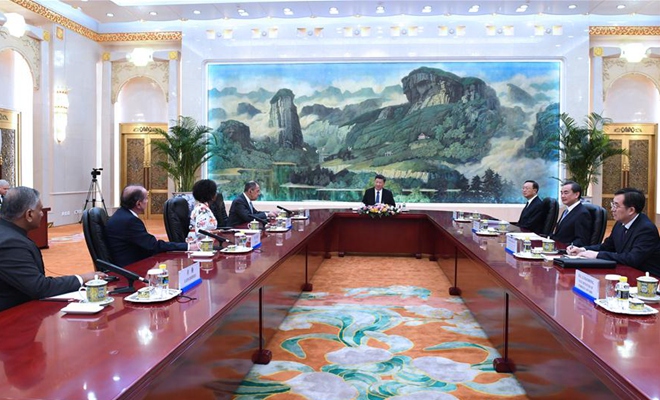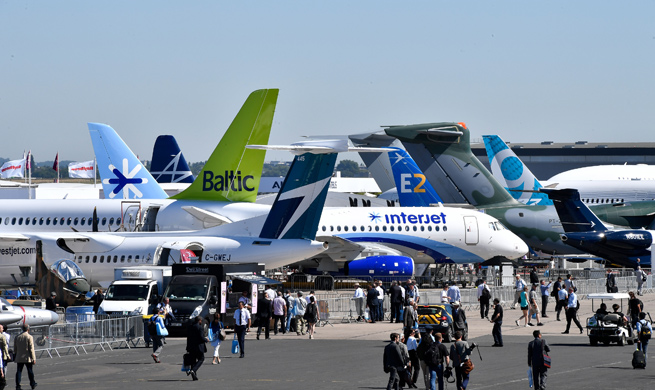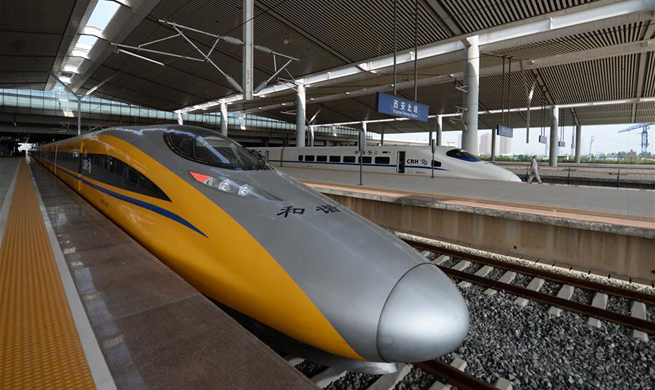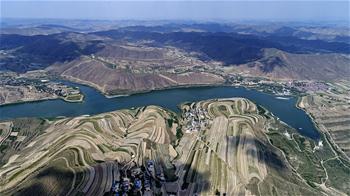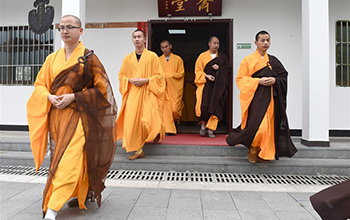HONG KONG, June 20 (Xinhua) -- Hong Kong's financial sector has boomed remarkably since its return to the motherland and the city will become a wealth management center for the mainland in the next two decades, said Hong Kong Exchanges and Clearing Limited (HKEX) chief executive Charles Li.
The "one country, two systems" principle is the cornerstone for the prosperity of Hong Kong's financial sector, Li said in a recent interview with Xinhua.
FROM REGIONAL TO GLOBAL
In the past 20 years since its return to the motherland, Hong Kong's stock market capitalization gained by more than seven times, the number of listed companies rose by more than two times, and the daily transaction volume went up by more than four times.
"We are used to talking about Hong Kong as an international financial center, but 20 years ago, it was a regional financial center with limited international investment on regional assets, now it has turned into an international market with huge global investment," he said.
He added that another big change in the past ten years is that more investment has been coming from the mainland.
It was only in 1993 that Hong Kong saw the first public listing of an enterprise from the mainland, namely Tsingtao Brewery, but now Hong Kong has become the top choice for mainland enterprises to raise fund overseas.
The number of mainland enterprises listed in Hong Kong went up by nine times in the past two decades. At the end of 1997, only 101 enterprises from the mainland were listed in Hong Kong, 15 percent of the total number of listed companies or 20 percent of the market capitalization. At the end of 2016, the number was 1,002, 51 percent of the total number of the listed companies or 63 percent of the market capitalization.
FROM FUND RAISING TO STOCK CONNECTS
Hong Kong has helped the mainland attract remarkable capital in the past three decades. It will continue to be crucial in the mainland's reforms and opening-up and shift its role from attracting capital into the mainland to allocating assets for the mainland in the next two decades.
Hong Kong has contributed in three aspects for the mainland during the reforms and opening-up: intermediary trade, foreign direct investment (FDI) and a booming capital market, Li said.
Intermediary trade brought "the first pot of gold" to the mainland, FDI has turned the mainland into the "world's factory" and the booming capital market in Hong Kong has injected investment into the mainland, he noted.
The three aspects share one thing in common: channeling investment into the mainland, he stressed.
Li forecast a bigger change for the mainland and Hong Kong in the next two decades: mainland investors are more willing to allocate assets overseas and Hong Kong will accordingly shift its role from bringing capital into the mainland to helping the mainland allocate assets overseas, he said.
Most large enterprises and institutional investors are capable of going overseas to invest, but most small institutions and individual investors are not, so they need vehicles allowing them to "sit at home and invest globally," he said.
The Shanghai-Hong Kong Stock Connect launched in 2014 and the Shenzhen-Hong Kong Stock Connect launched in 2016 are such vehicles through which mainland investors can buy stocks of global companies listed in Hong Kong, Li said.
The existing two connects enable investors to conduct cross-border trading. International investors can trade stocks listed in Shanghai and Shenzhen via the Hong Kong exchange while mainland investors can trade Hong Kong stocks via the exchanges of Shanghai and Shenzhen.
The mainland's capital market is not fully open and thus is quite alert on huge flows of hot money, so the two connects are quite helpful as they can keep capital flows orderly and transparent, he said.
He further explained that both connects are of "closed systems," which allow mainland investors to invest overseas, but do not allow them to take money out overseas.
It's the same with overseas investors and they can buy stocks on the mainland, but can not take their money out on the mainland, he said.
Besides, Bond Connect, a new mutual market access scheme that will allow investors from the mainland and Hong Kong to trade in each other's market, was approved in May. The launch date remains subject to further notice.
Apart from these, ETF Connect, Primary Connect and Commodities Connect are also part of the bourse's wide-ranging expansion plans to widen the cross-border investment channel in the coming years, according to the HKEX.
THREE NEW FUNCTIONS
In the next two decades, Hong Kong will not only be a fund-raising center for the mainland, but also a wealth management center, a leading offshore risk-management center and a global assets price-fixing center, Li said.
To realize the visions, the key is "one country, two systems," he stressed.
Because of "one country," Hong Kong will not harm state interests, and because of "two systems," Hong Kong can maintain practices in line with conventions, investment culture and supervision framework of the international financial market, Li said.
In this way, "global money" is willing to come to invest and "global goods" are willing to come to receive supervision, and thus they can further attract investment from the mainland, he said.
"One country, two systems" is a great concept, otherwise, Hong Kong would not have achieved such prosperity in many aspects. When the mainland faces bottlenecks in reforms and opening-up, it can draw on Hong Kong, a special channel, to tackle obstacles it meets with, he said.
Li believed that Hong Kong's advantage, in the long run, lies in "one country, two systems."
Hong Kong will continue to serve as a "converter" between the mainland and the international market in many aspects in the future, he said.




